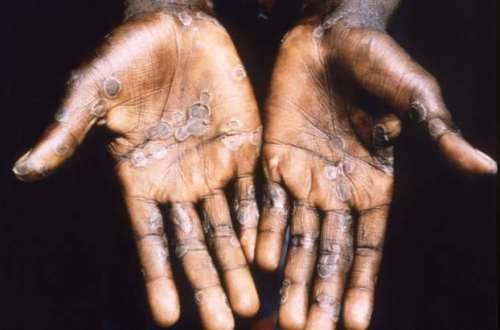With three African countries with no previous history of human monkeypox transmission reporting cases, World Health Organization (WHO) is working with national health authorities in the region to bolster surveillance and laboratory diagnosis to detect cases and deter a silent spread of the virus.The continent has, as of 28 June, reported 1821 cases in 13 countries of which 109 are laboratory confirmed in nine countries. The number of confirmed cases accounts for 2% of the more than 4500 confirmed cases globally. However, there are a large number of suspected cases in the region, 81% of which are in the Democratic Republic of the Congo, underlining the need for increased diagnostic capacity.Â
While all African countries have the polymerase chain reaction machines needed to test for monkeypox thanks to reinforced laboratory capacity in the wake of COVID-19, many lack reagents and some cases training in specimen collection, handling, and testing. WHO is working to secure 60 000 tests for Africa, with around 2000 tests and reagents to be shipped to high-risk countries and 1000 to those facing lower risk. Â
Over the past month, five more African countries have received donations of reagents from partners, bringing to 12 the number of countries in the region with enhanced monkeypox diagnostic capacity. Another group of countries in West Africa will receive reagents after participating in a training. Â
Outside the six countries in Africa with a history of human transmission, monkeypox has also been reported in three countries that have not previously had any human cases. These include Ghana, Morocco, and South Africa, which have confirmed the disease in two patients with no travel history, suggesting there is a high possibility of local transmission.WHO is working closely with the Member States and partners to define what type of coordination mechanism could be put in place to ensure fair access to vaccines. There are many regulatory, legal, operational, technical, and other issues to clarify before an allocation mechanism is fully operational. Â
With limited vaccines and antivirals, WHO does not recommend mass vaccination for monkeypox but rather targeted vaccination for people who have been exposed or are at high risk including health workers, laboratory personnel, and outbreak team responders.Â
Dr. Moeti spoke during a virtual press conference today facilitated by APO Group. She was joined by Professor Oyewale Tomori, former President of the Nigerian Academy of Science and Professor of Virology, Redeemers University, Nigeria; and Professor Justin Masumu, National Pedagogical University, the Democratic Republic of the CongoÂ
Also on hand from the WHO Regional Office for Africa to respond to questions were Dr. Fiona Braka, Team Lead, Emergency Operations; Dr. Thierno Balde, Regional COVID-19 Incident Manager; Belinda Herring, Technical Officer; Tieble Traore, Technical Officer; and Jason Mwenda, Medical Officer.



No comments yet
Be the first to share your thoughts!